From Soviet Odessa to Shabbat in Israel: The Journey of Shlomo Nizin
After years in Ukraine's music scene, Shlomo Nizin embraced Judaism and moved to Israel. Now he's sharing his inspiring life story and spiritual journey through sacred melodies.
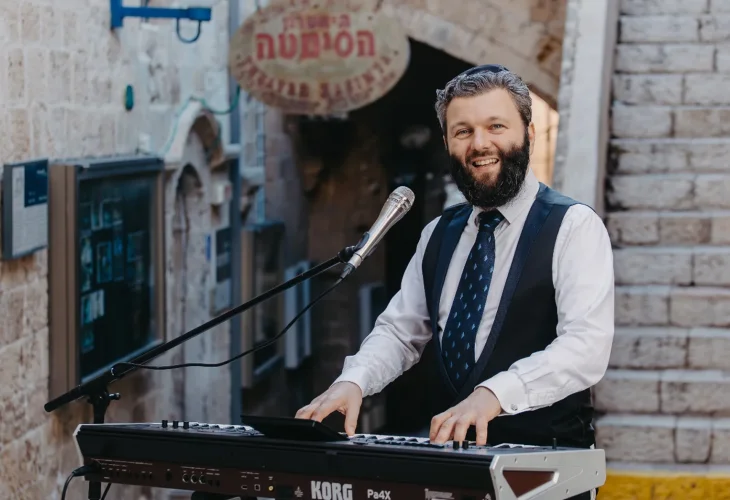 Shlomo Nizin
Shlomo NizinShlomo Nizin is a gifted musician, one of the most recognized names in the Jewish communities of Ukraine and Russia over the last two decades. He's known in Israel too, often invited to events and celebrations, yet not many are familiar with his fascinating life story and the unique divine providence that led him to where he is today.
"I was born in Odessa, Ukraine, to a non-religious family," Nizin recounts. "I knew I was Jewish because we did things like many Soviet Jews—matzah on Passover, apples and honey on Rosh Hashanah, and at 13, they toasted *l'chaim* for my Bar Mitzvah. But Judaism held no deeper meaning beyond that. I attended a regular school, and though there were other Jews in my class, and we all faced some antisemitism, Judaism was so marginal in our lives that it just didn't occupy our thoughts at all."
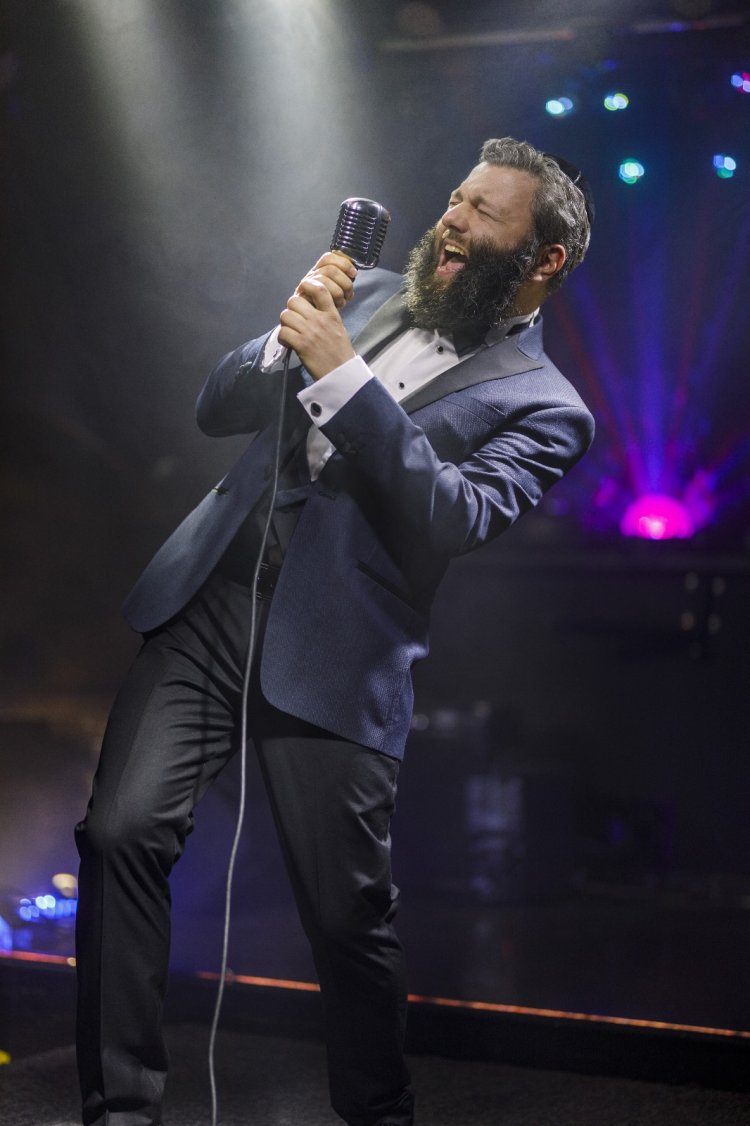
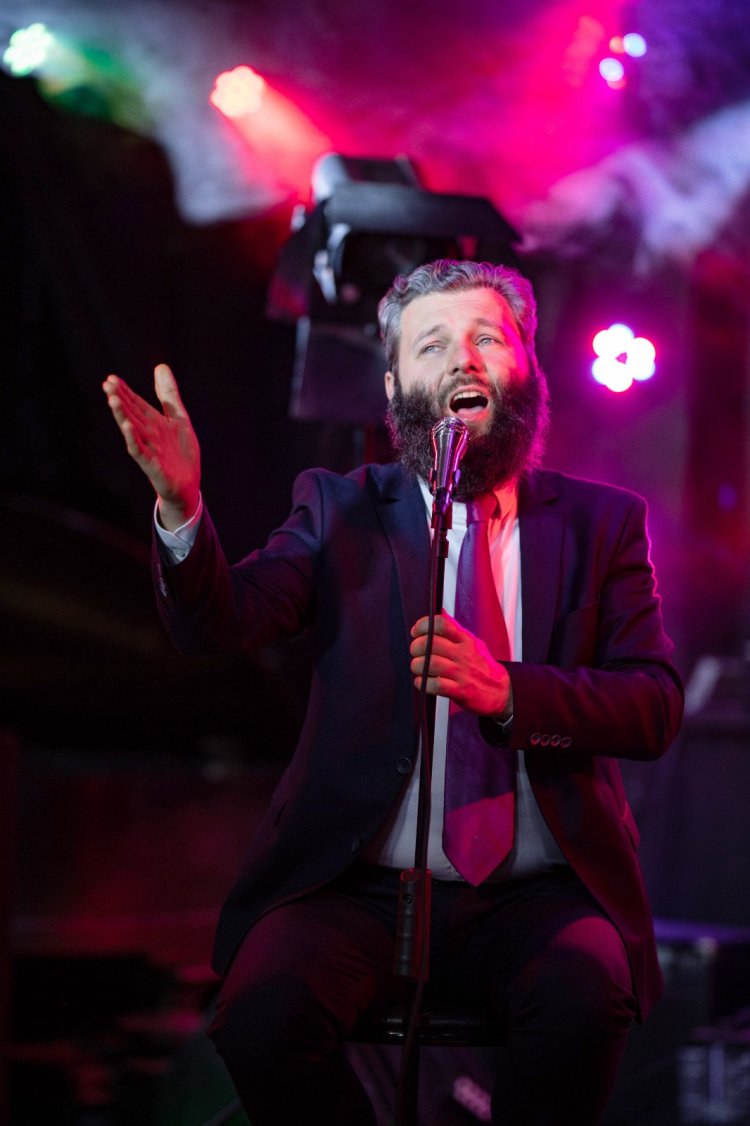
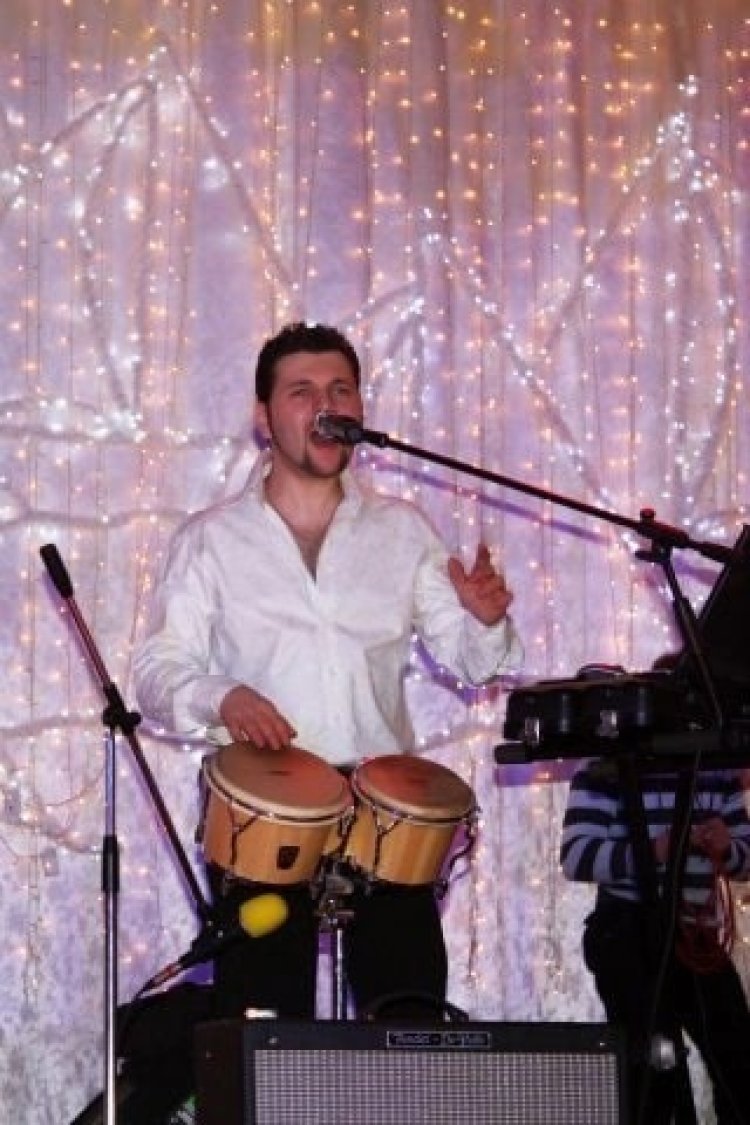
A Life of Music
Nizin's connection to music began at a young age. "I loved it, and it filled my life," he explains. "My father was deeply connected to music and introduced it to me early on. I also had an uncle nearby who was a well-known musician in Odessa and throughout Ukraine. At 12, I began learning piano, and by 18, I was recording myself in a studio and started getting invitations to perform. Over the years, I honed my skills and studied voice training, which allowed me to sing as well. Although my parents insisted on a 'proper' profession, so I studied high-tech, music captivated me, and it was the only thing that interested me."
During the years he immersed himself in music, Odessa saw the establishment of Chabad institutions, activities by the Jewish Agency, and Hebrew classes for children.
"My mom ran a charity helping elderly Jews, and I assisted her," he shares. "We supported around 400 elderly people, providing social workers and assistance in every way. Yet, most Jews there, including us, really didn’t grasp what Judaism asks of us, or what its meaning was. We were quite disconnected."
How do you explain this disconnect?
"Those who didn’t live in Ukraine or Russia during those days might find it hard to understand, as the disconnect from Judaism was profound. It’s tragic when you think about it, because in Odessa, where I grew up, before World War II, there were many Jewish residents, with over a third of the population being Jewish, often speaking Yiddish. I even heard that back in the day, the non-Jews spoke Yiddish there. But the war greatly reduced the Jewish population, as many were killed, and those who survived mostly moved to Israel or other countries."
Nizin's family had long roots in Odessa, and while many around them decided to leave for Israel, they never considered it. But at 24, Nizin found himself visiting Israel for the first time, and the story behind it is nothing short of amazing.
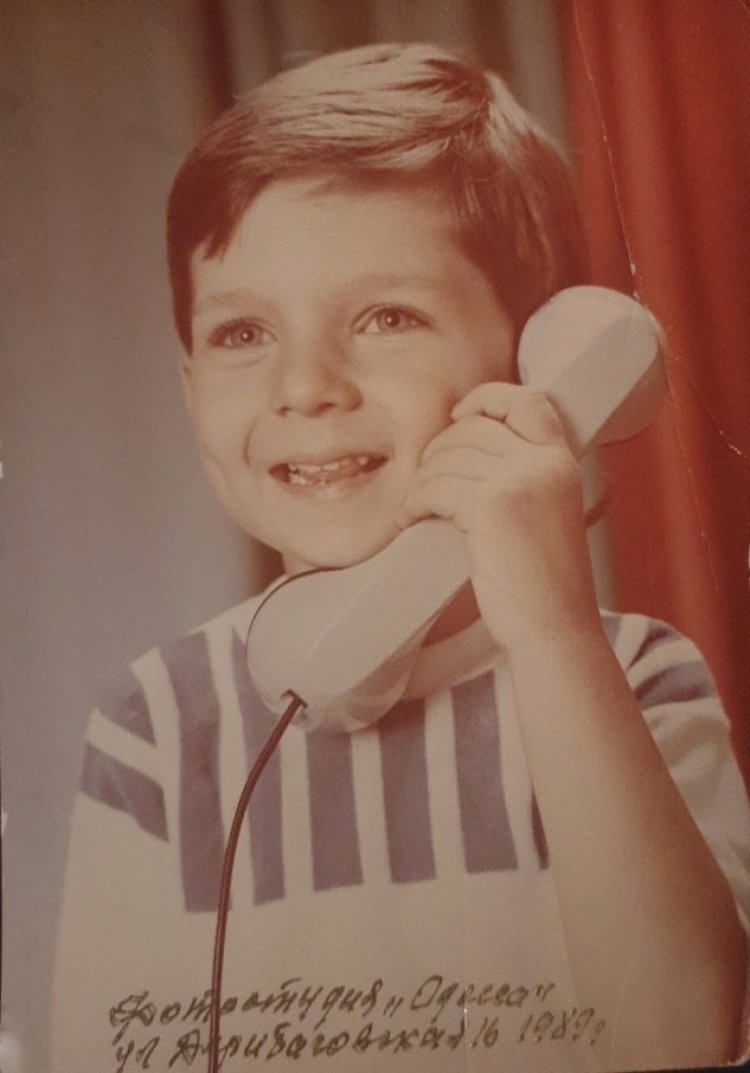
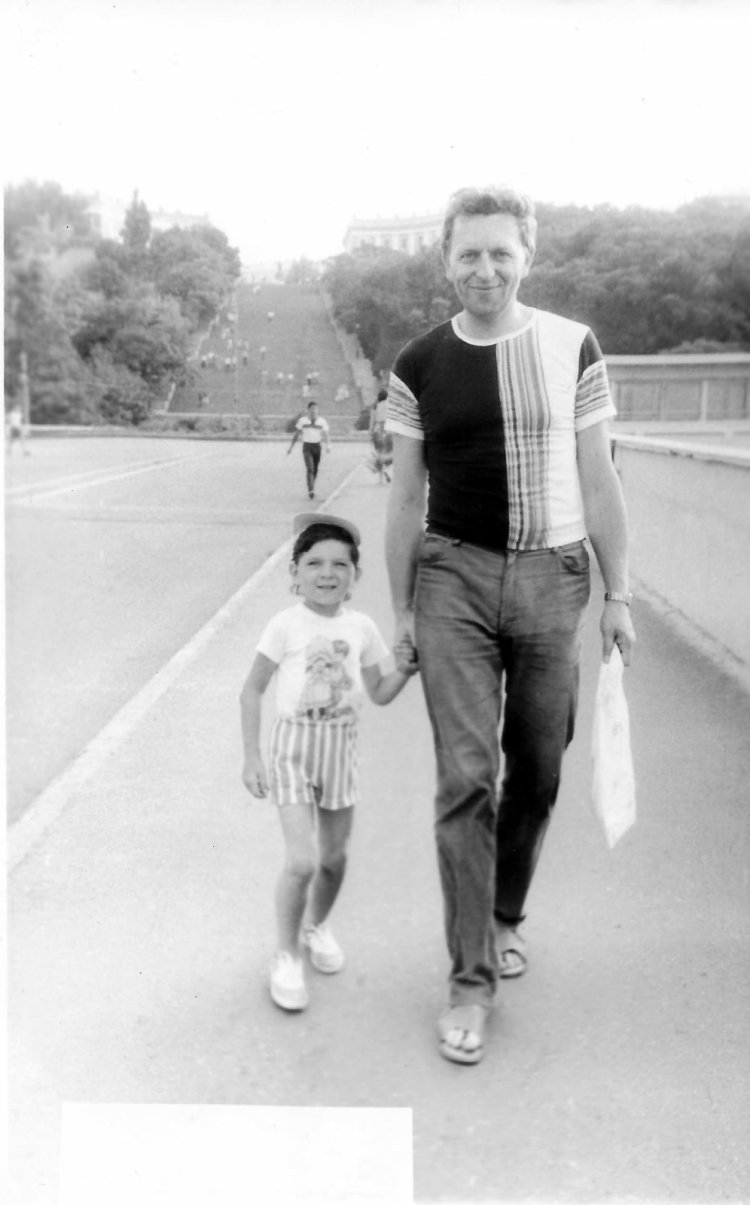
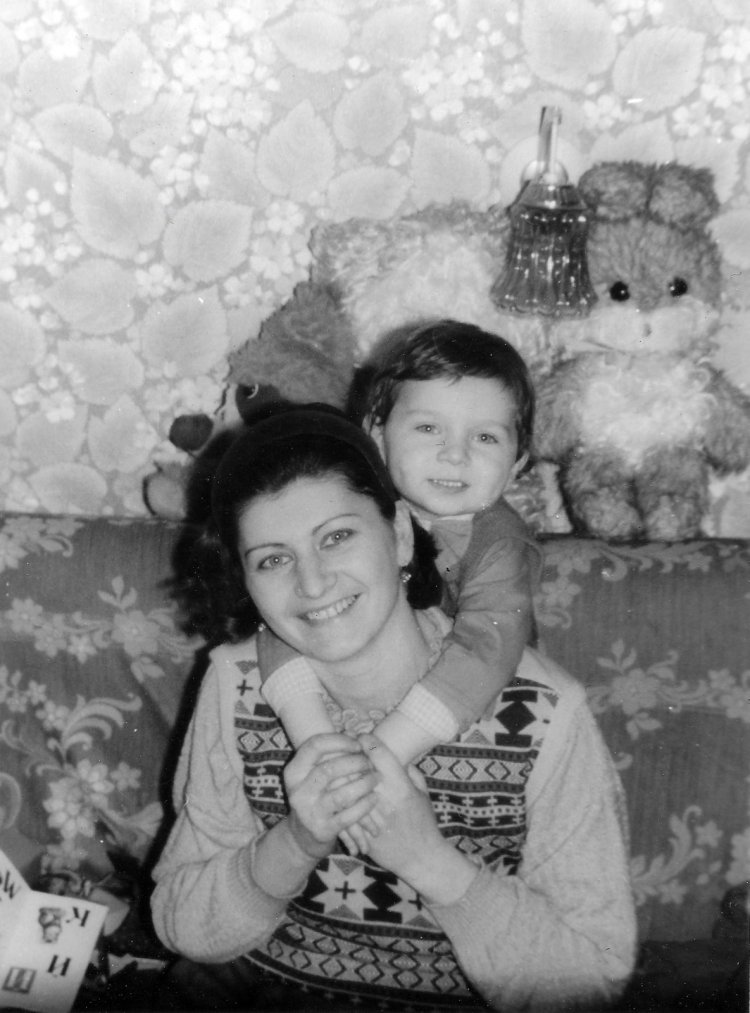
"What Will I Pass to My Children?"
"It started when I was at a restaurant with a friend of mine, a Georgian singer, and another artist I worked with," Nizin recalls. "We discussed languages and culture, and then he mentioned how despite speaking with us in Russian, when he has kids, he would want to teach them Georgian culture and traditions. I left that conversation thunderstruck, overwhelmed by thoughts: 'What about me when I have kids? What will I pass on to them? A tradition? Some customs? My grandma spoke Yiddish, but I don’t even know that language, nor do I know our history. Will I give them 'Hava Nagila' and a few spicy words in Yiddish?’ It felt unsettling, realizing that's all I knew. I looked up and, for the first time in my life, found myself praying to Hashem, asking to learn and understand more.
"In divine providence, the very next day, my cousin called, saying he was invited to join a Birthright trip to Israel. He couldn't make it, so he offered me to take his place. I contacted the agency and joined a 13-day journey that was utterly transformative.
"From the moment we arrived in Israel and stayed at the 'Shalom Hotel' in Jerusalem, I stepped onto the balcony, took in the surrounding scenery, and felt it was the only place I wanted to live. During this trip, I tasted the true spirit of Shabbat for the first time, seeing the guide make Kiddush and enjoying the meals, prayers, and learning about the essence of this sacred day. It deeply resonated with me.
"The guide's wife joined us sometimes, and when she was getting off the bus, I instinctively offered my hand to help, but she reacted hesitantly. Later, they explained to me about *shmirat negiah* (avoiding physical contact). Learning about it truly touched me, especially seeing the deep connection between the guide and his wife. It caught me in a way that I told myself, 'I too want a great and limitless love, real and pure.'"
Nizin returned to Odessa and fell ill with pneumonia, resulting in nearly a month in the hospital. "It gave me time to reflect on what I had seen and ask myself what it meant for me, figuring out where I stood in all this and what I wanted next—return to my old life, just with a warmer heart towards Judaism, or should I search for more?
"After being discharged, I found a Torah class for Russian speakers and attended twice a week, but it wasn't enough, so I joined more classes at different synagogues. Then came Shabbats, holidays, and further growth in various areas."
When Passover approached, one of his mentors from the program invited Nizin to a camp in Israel. "I told him I was in a tough financial situation and couldn't afford the trip, but he responded, 'Don't think about money. I'll handle it, just be with us for a whole week.'
"The day before the trip, I attended a gathering in Odessa for 'Birkat HaChama,' where I met my future wife, introduced by the local rabbis. Our bond formed quickly, just as they say, 'a match made in heaven.'
"My wife is also from Ukraine and was one of the first to study in the Chabad kindergarten and school. During that Passover, we both stayed in Israel, breathing its special sanctity, telling ourselves repeatedly this is the place we want to live."
However, it didn't happen immediately. "After getting married, we lived for a while in Ukraine, where I learned in yeshiva and took rabbinical exams. Our first daughter, Gitl Beila, was born there, and she recently celebrated her Bat Mitzvah. Later, we made aliyah, followed by my parents, who are now Torah observant. My father started becoming religious in Ukraine and also studied in a kollel there, but it was mostly in Israel where we experienced a real bond with Torah and Judaism. Here, you just feel part of something greater, a true sense of belonging."
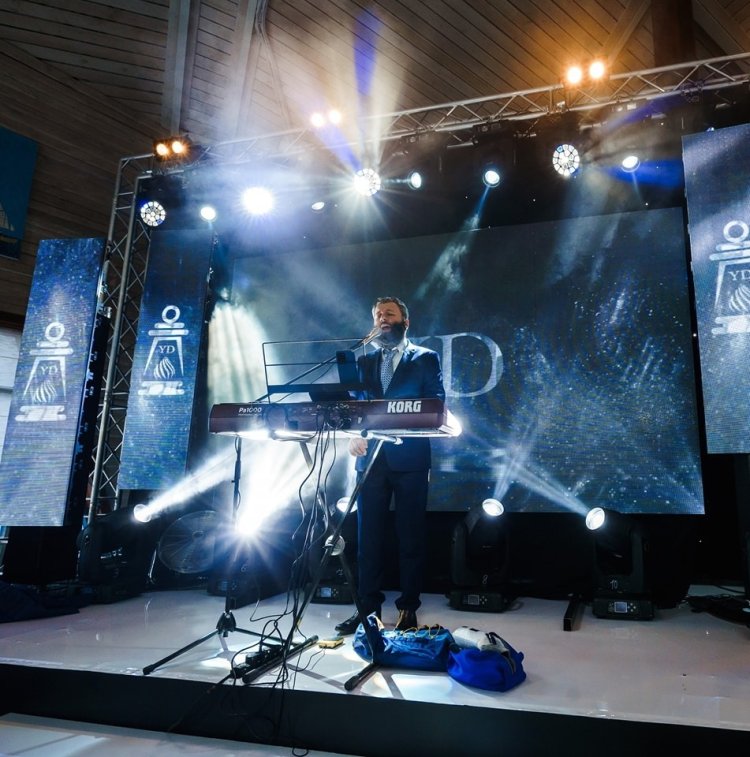
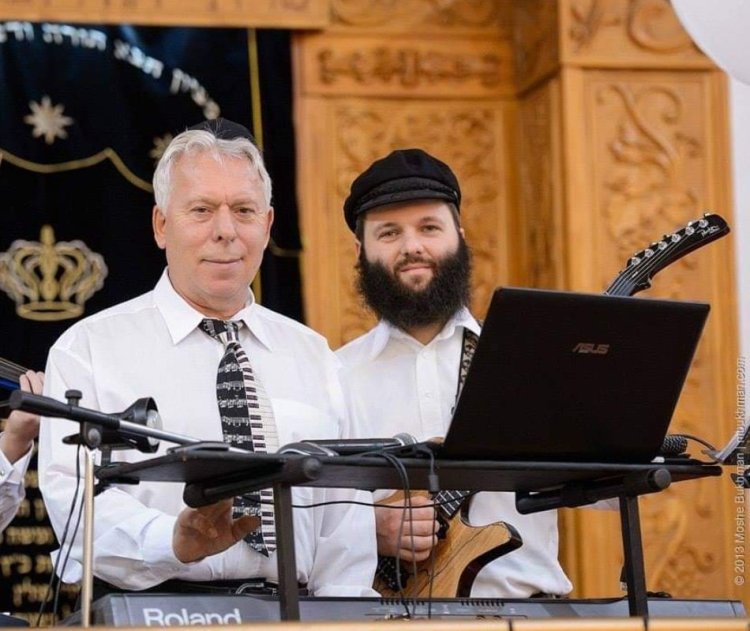
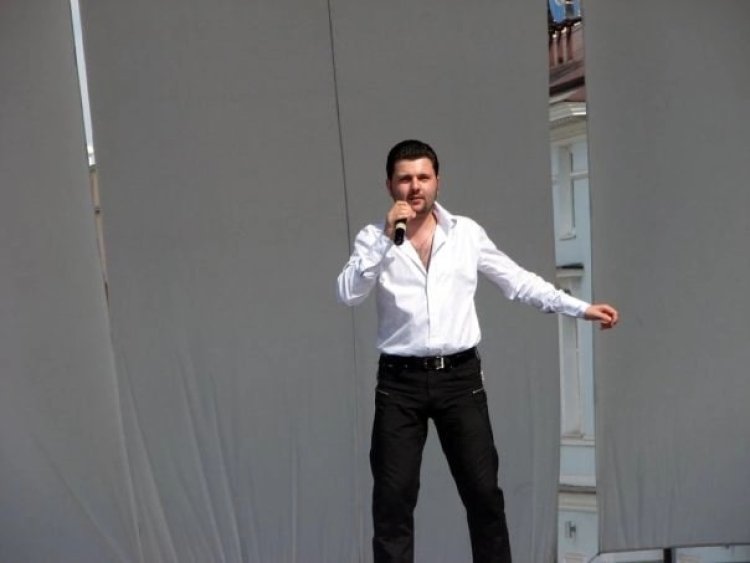
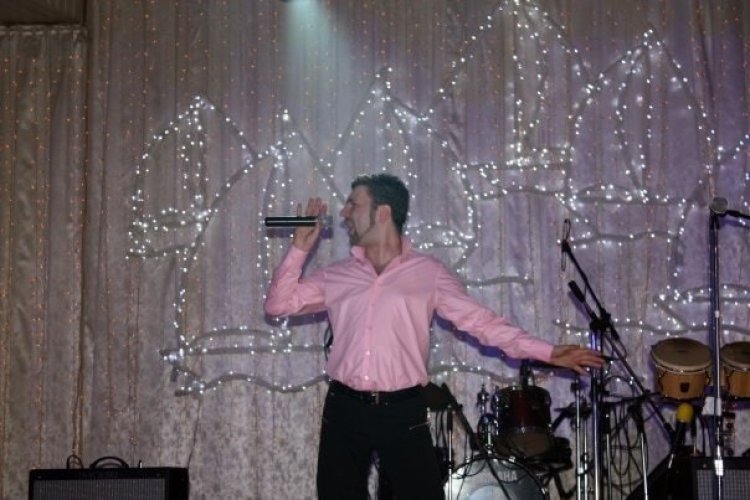
Sparks of Holiness
What about your love for music? How did it fit into your new life?
"Since I was 18, I worked extensively as a singer, keyboardist, musician, and guitarist. Many performances in Ukraine were with my late uncle. Together we performed at Jewish community celebrations like Simchat Beit HaShoeva, Purim feasts, and various events. After returning to religious observance and keeping Shabbat, I stopped performing on Shabbats but began learning Chabad melodies and became deeply connected with them."
Even after making aliyah, Nizin was still invited to perform abroad, finding himself splitting time between Russia, Ukraine, and Israel. "During the pandemic, once possible, I traveled and performed in 30 European countries, as well as Canada and Morocco," he shares. "I also perform in Israel—weddings, bar mitzvahs, and more. I conduct Chabad melody workshops and teach at an online Jewish school for Russian speakers, with students worldwide."
Do you compose the songs you perform?
"I don’t compose, but I do arrangements and perform with a guitarist, musicians, bands, and orchestras. Still, in my solo shows, I usually perform alone—playing and singing, striving to do so as professionally as possible, because I was raised to always aim for the highest standards."
Do you think there is an appreciation for high standards here in Israel?
"Sadly, in Israel, especially among the religious community, there's not much appreciation for high musical standards. I don't know if it's because people look for the cheapest, or if they just don't understand. Nonetheless, occasionally, I get invited by people with advanced musical backgrounds or those who simply have a profound connection to music and are happy to have a singer who can perform at an international music level."
And what about your kids? Are they involved in music too?
"I have four wonderful children, and since both my wife and I are deeply connected to music, and she plays the violin, it's natural they all love singing. At events, holidays, and parties we host at home, we play and sing a lot.
"But more than anything, I love taking songs with wholesome lyrics and 'Jewishing' the words. For example, I'll adapt a song that talks about a candle's light shining brighter than the sun at night and develop it with a Chassidic message. Overall, I seek songs where I can reveal sparks of holiness. That’s my goal—to sing with meaning, to inspire."

